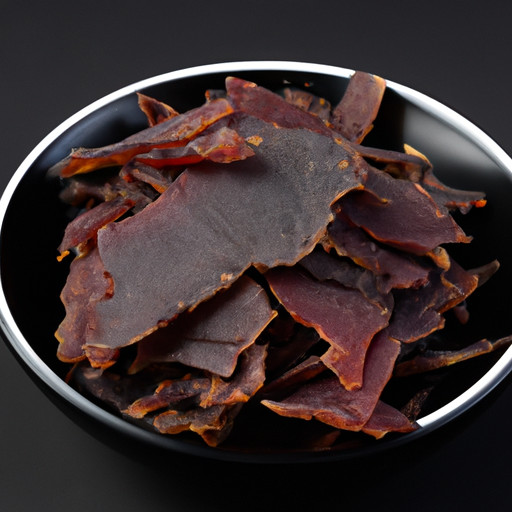The Truth About Meat Jerky’s: Is Eating Beef Jerky Good for Hiking Kokoda and Your Health?
Introduction
Embarking on the challenging trek of the Kokoda Track requires careful consideration of your nutrition. One essential element that trekkers often overlook is the importance of the right kind of sustenance during the journey. In this comprehensive guide, we will explore the numerous benefits of incorporating meat jerky, particularly beef jerky, into your hiking provisions.
Trekking Kokoda and the Need for Proper Nutrition
Trekking Kokoda is a physically demanding Endeavor that requires endurance and stamina. Proper nutrition plays a crucial role in sustaining energy levels and aiding recovery. Meat jerky, especially beef jerky, emerges as a convenient and nutritionally dense option for trekkers.
The Nutritional Health Benefits of Beef Jerky
High-Protein Snacking
Beef jerky is renowned for being a high-protein snack. Proteins are essential for muscle repair and growth, making them crucial for trekkers navigating the challenging terrains of Kokoda. Each serving of beef jerky provides a substantial amount of protein, aiding in the maintenance of energy levels throughout your hike.
Lean Cuts of Beef for Optimal Health
Choosing lean cuts of beef for jerky ensures that you consume a low-fat, high-protein snack. The process of making beef jerky involves marinating and dehydrating lean cuts, preserving the nutritional integrity of the meat. This makes it an ideal choice for those looking to maintain a healthy and balanced diet while trekking.
Rich in Iron and Zinc
Iron and zinc are essential minerals that play a vital role in supporting various bodily functions. Beef jerky is a rich source of both iron and zinc, contributing to the formation of red blood cells, boosting the immune system, and aiding in overall well-being. These minerals are particularly important for those engaging in strenuous physical activities like hiking.
Low in Carbs, High in Sodium
For trekkers following a low-carb diet or looking for a quick energy boost, beef jerky fits the bill perfectly. It’s low in carbohydrates, making it an excellent option for sustained energy without the risk of sugar crashes. Additionally, the high sodium content in beef jerky helps replenish electrolytes lost through sweat during long hikes.
Why Eating Beef Jerky is a Smart Snack Choice
Preservative-Free and Nutrient-Dense
Unlike many processed snacks, beef jerky is often free from preservatives. This ensures that you’re eating a snack food that’s not only delicious but also nutritionally valuable. The absence of unnecessary additives makes it a wholesome and natural choice for those seeking unprocessed foods.
Long Shelf Life and Portability
One of the significant advantages of beef jerky is its long shelf life. This makes it an ideal snack for trekkers who need durable, non-perishable options. Packed with essential nutrients, it’s a convenient on-the-go snack that requires no refrigeration, ensuring it stays fresh throughout your Kokoda adventure.
Easy to Make at Home
For those who prefer a hands-on approach to their nutrition, making beef jerky at home is a viable option. You can control the ingredients, ensuring that your jerky is tailored to your taste and nutritional preferences. This allows for a more personalized and satisfying hiking experience.
Considerations and Conclusion
Balanced Diet and Variety
While beef jerky offers numerous health benefits, it’s crucial to incorporate it as part of a varied diet. Including a mix of foods ensures that you receive a broad spectrum of nutrients necessary for overall health. Balance your jerky intake with other foods to create a well-rounded nutritional plan for your Kokoda trek.
Conclusion
In conclusion, beef jerky emerges as a versatile and beneficial snack for trekkers on the Kokoda Track. Its high-protein content, rich mineral profile, and portability make it an excellent choice for those seeking sustenance during their challenging journey. Whether you opt for commercially available options or prefer to make your own, beef jerky can be a valuable addition to your hiking provisions, contributing to a healthier and more enjoyable Kokoda experience.
FAQ’s
Q: Is beef jerky a healthy snack option?
A: Yes, beef jerky can be a healthy snack option as it is low in fat, high in protein, and a good source of zinc, iron, and vitamin B12.
Q: What are the nutritional benefits of eating beef jerky?
A: Beef jerky is a good source of protein, zinc, iron, phosphorus, and vitamin B12. It is also low in fat and can be a convenient and nutritious snack.
Q: Are there any downsides to consuming beef jerky?
A: While beef jerky can be a good source of nutrients, it’s important to be mindful of its high sodium content, as excessive sodium intake can have negative effects on health.
Q: Can beef jerky be considered a good option for hiking Kokoda?
A: Yes, beef jerky can be a great option for hiking Kokoda as it is a lightweight, portable, and high-protein snack that can provide sustained energy during long treks.
Q: Is it possible to make beef jerky at home?
A: Yes, beef jerky can be made at home using lean cuts of meat and a marinade, then dehydrating the meat to create a flavourful and nutritious homemade snack.
Q: Is beef jerky a healthy alternative for those looking for low carb options?
A: Yes, beef jerky can be a healthy alternative for those seeking low carb options, as it is a high-protein, low-carbohydrate snack that can help satisfy cravings without the added carbs.
Q: What are the benefits of consuming beef jerky?
A: Consuming beef jerky can provide a good source of protein, essential nutrients like zinc and iron, and can serve as a quick and convenient snack for individuals with active lifestyles.
Q: Is beef jerky a good option for those looking for a meat snack?
A: Yes, beef jerky is a popular meat snack that is made from lean cuts of meat, providing a flavourful and protein-rich option for those seeking a savory snack.
Q: What makes beef jerky a great option for your health?
A: Beef jerky is a great option for your health as it serves as a convenient and nutritious snack that is rich in protein, low in fat, and provides essential nutrients like zinc, iron, and vitamin B12.





